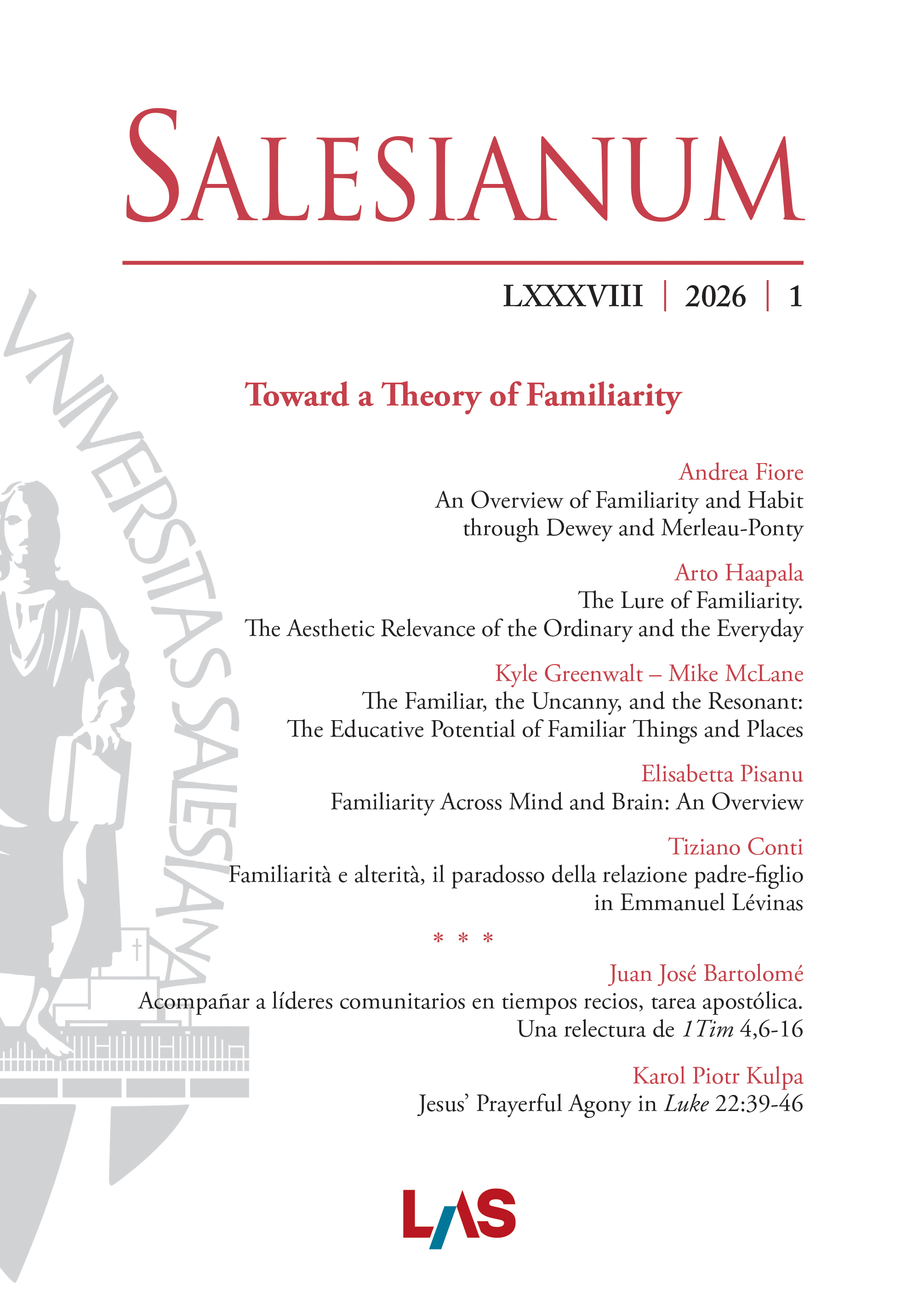Los sueños de José (Mt 1,18-25; 2,13-15.19-21.22-23). Soñar a Dios para, despierto, obedecerle
The Dreams of Joseph (Mt 1:18-25; 2:13-15.19-21.22-23). Dreaming of God to, Awake, Obey Him
Salesianum vol. 87 (2025) n. 2, 349-390Section: Studia
Sommario
La presencia de José, esposo de María (Mt 1,16.19; Lc 1,27), tenido por padre de Jesús (Lc 3,23; cf. Mc 6,3), en la tradición evangélica es muy discreta. Excepción hecha del cuarto evangelio (Jn 1,45; 6,42), José solo es mencionado en los llamados relatos de la infancia (Mt 1,1-2,23; Lc 1,5-2,52). Y en el de Mateo nos ofrece, José no hará otra cosa que soñar para que Dios le pueda desvelar su voluntad y despertarse sin demoras para cumplirla (Mt 1,20; 2,13.19.22). Sus sueños fueron el vehículo que Dios utilizó para decirle qué esperaba de él. Pero cuanto de él esperaba no finalizaba en su persona, concernía, más bien, a su esposa encinta y a un niño que él no había procreado.
Parole chiave
José | Sueño | Revelación | Obediencia | Cumplimiento de profecías
Abstract
Joseph, the husband of Mary (Mt 1:16.19; Lk 1:27), considered to be the father of Jesus (Lk 3:23; cf. Mk 6:3), has a very discreet presence in the Gospel tradition. With the exception of the fourth Gospel (Jn 1:45; 6:42), Joseph is only mentioned in the so-called infancy narratives (Mt 1:1-2:23; Lk 1:5-2:52). And in that of Matthew, Joseph will do nothing but dream so that God can reveal his will to him and awaken him without delay to fulfil it (Mt 1:20; 2:13.19.22). His dreams were the vehicle God used to tell him hat he expected of him. And what he expected of him did not end with himself, but rather concerned his pregnant wife and a child he had not borne.
Keywords
Joseph | Dream | Revelation | Obedience | Fulfillment of prophecies
